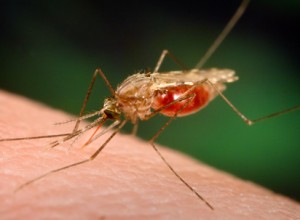Malaria vaccine phase implementation to start in March
 Phase implementation of malaria vaccine is expected to begin in selected districts in three regions across the country in March this year.
Phase implementation of malaria vaccine is expected to begin in selected districts in three regions across the country in March this year.
The vaccine, RTS,S is expected to reduce episodes clinical malaria and severe malaria in the country with high risk of death.
The regions are Central, Volta and Brong Ahafo, where some districts will have the vaccines and others controlled, Mr James Frimpong, Deputy Programme Manager, National Malaria Control Programme (NMCP) told journalists at a training on the theme “role of the media in malaria elimination agenda.”
The training was organised in Accra by the NMCP, in collaboration with African Media and Malaria Research Network (AMMREN), for selected journalists from five regions.
Mr Frimpong said, some districts in Upper West will also be included in the phase implementation because that region is already benefiting from a similar project.
He said the regions were selected based on their disease burden, location in the country, immunization system and coverage of other malaria interventions.
The Deputy Programme Manager said the exercise will last for 30 months, and called for support from the media and other stakeholders.
Mr Frimpong said, babies aged six months are the targets of the exercise and will be given four doses.
Dr. Keziah Malm, NMCP Manager said, Ghana is at the control stage of the elimination agenda and needed concerted efforts of all to scale up the interventions towards eliminating malaria.
Dr. Nana Yaw Peprah, an Epidemiologist with NMCP said the current parasite prevalence in Ghana was 20.6 per cent, according to the 2016 Malaria Indicator Survey.
Dr. Felicia Owusu-Antwi from the World Health Organization said it was time to eliminate malaria in Ghana.
“Ghana is among the 10+1 countries contributing 80 per cent of global malaria burden so we need to double our efforts to consolidate gains made,” she said.
Mr Kwame Gakpey also with NMCP said intervention such as increasing utilization of treated nets, seasonal malaria chemotherapy, indoor residual spraying, environmental management of malaria and intermittent preventive treatment with sulfadoxine-pyrimethamine among others would be intensified to eliminate malaria.
Dr. Charity Binka, Executive Secretary, African Media and Malaria Research Network (AMMREN) said it was not acceptable for Ghana to be at the malaria control stage and charged journalists to support efforts at eliminating the disease.
Source: GNA
